As the COVID-19 pandemic shifts to a more endemic phase — becoming part of peoples’ everyday life for months to come — impacts on peoples’ mental health will persist, according to new research from CVS Health in the company’s annual Health Care Insights Study.
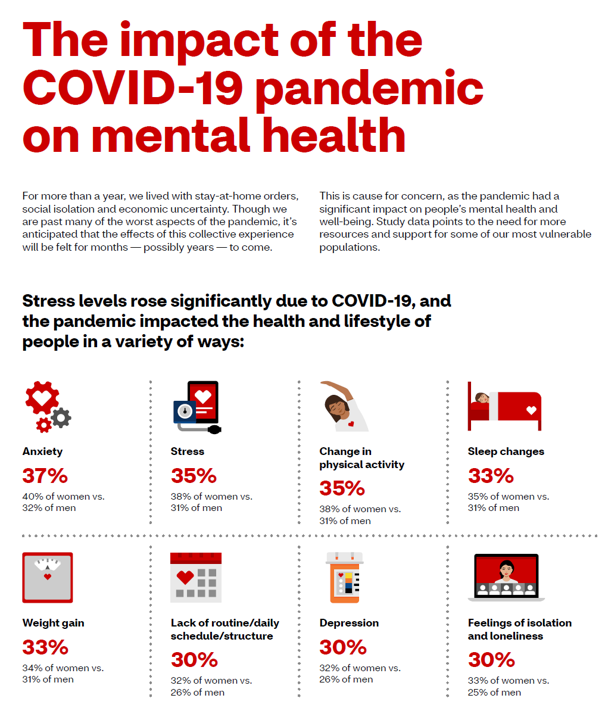 CVS conducted the annual Health Care Insights Study among 1,000 U.S. adults in March 2021. To complement the consumer study, an additional survey was undertaken among 400 health care providers including primary care physicians and specialists, nurse practitioners, physician assistants, RNs and pharmacists.
CVS conducted the annual Health Care Insights Study among 1,000 U.S. adults in March 2021. To complement the consumer study, an additional survey was undertaken among 400 health care providers including primary care physicians and specialists, nurse practitioners, physician assistants, RNs and pharmacists.
CVS has been tracking the growing trend of health care consumerism in the U.S. since first launching this consumer market research in 2018 in the Health Ambitions Study conducted in concert with Aetna — the pharmacy chain’s newly-acquired health insurance company.
Stress levels among U.S. health citizens significantly rose, CVS found in its survey: 37% of people grew more anxious, 35% more stressed or lowering physical activity, 33% experienced changes in sleep or weight gain, and 30% felt depression or feelings of isolation and loneliness.
More women than men reported these various levels of mental health impacts, with the largest gaps in anxiety (40% women vs. 32% of men), isolation and loneliness (33% women vs. 25% men), and feeling greater stress (38% of women compared with 31% of men).
Interestingly, there was also a marked “Mars Vs. Venus” difference between men and women when it came to using virtual/digital technology during the pandemic:
- 21% of men cited the importance of having the option of virtual care during the pandemic compared with 15% of women
- 64% of men used virtual visits as a result of COVID-19 vs. 46% of women
- 57% of men were likely to seek out mental health services using a virtual visit vs. 43% of women.
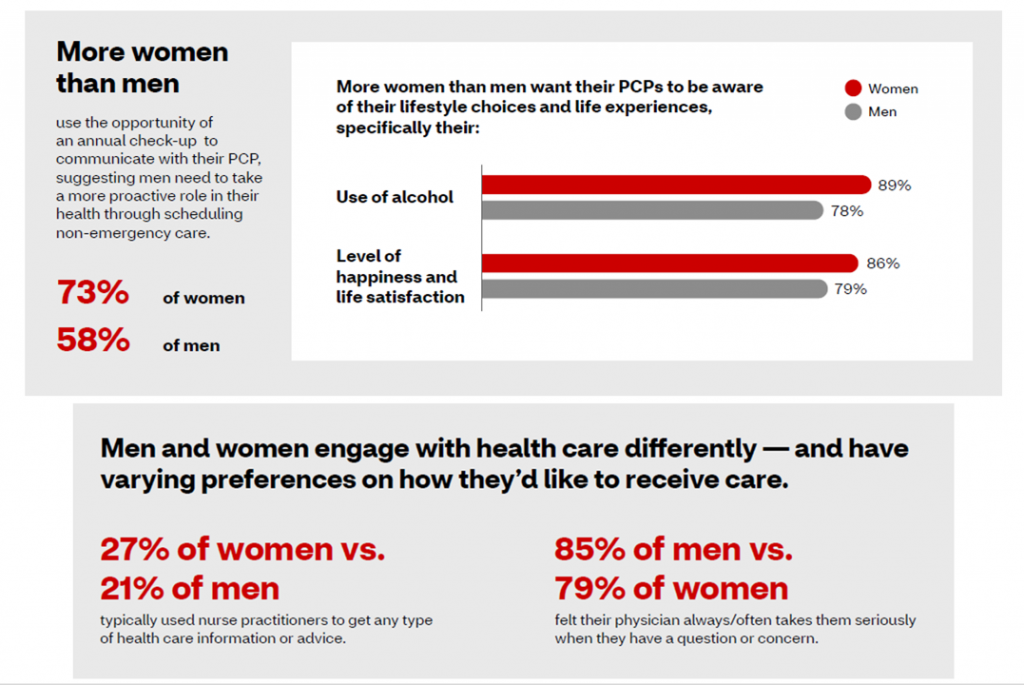
Interestingly, more women tend to have a broader view of how to access care in terms of type of professional with whom to engage, how to engage with respect to communicating health issues such as lifestyle choices and life experiences and perceptions of how they feel about their physician taking them seriously when they have a concern (surprise, surprise: fewer women feel doctors take their concerns seriously compared with men seeing the doctor).
More men than women also increased their substance use during the pandemic a factor that’s about two-to-one in terms of,
- Nicotine, with 28% of men increasing use versus 17% of women
- Alcohol, at a rate of 28% men vs. 15% of women, and
- Opioids, with 15% of men increasing use compared with 7% of women.
Note that more women than men want their PCPs to be aware of lifestyle choices and feelings, such as the use of alcohol and level of life satisfaction (shown in the second chart from the study).
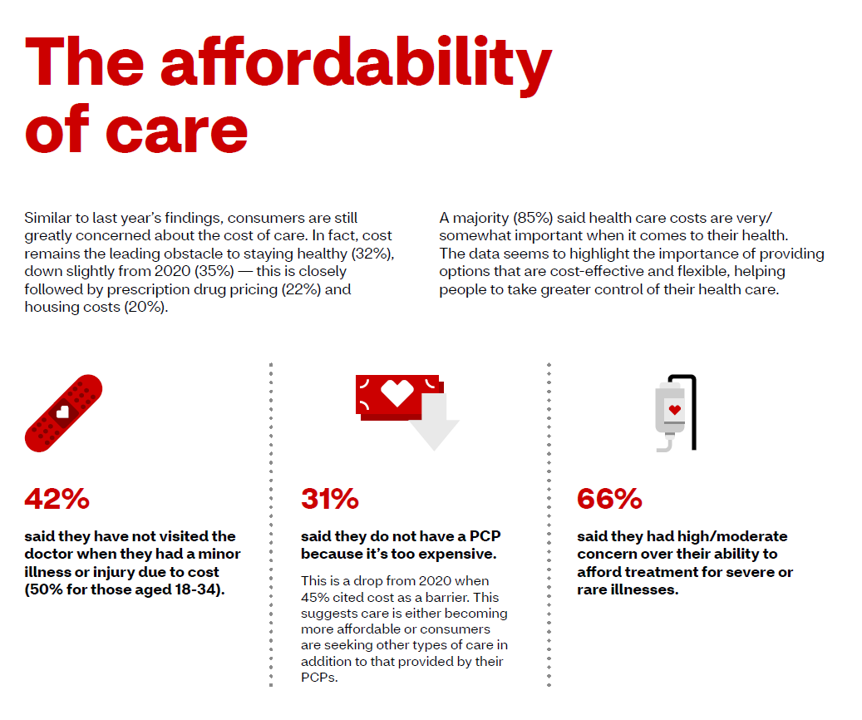 Health Populi’s Hot Points: CVS has gauged patients’ views on health care costs since the inception of this study as part of the company’s tracking consumerism in health care.
Health Populi’s Hot Points: CVS has gauged patients’ views on health care costs since the inception of this study as part of the company’s tracking consumerism in health care.
Overall, 85% of health consumers told CVS that health care costs are important when it comes to their health, with one-third noting the cost of care is a leading obstacle to staying healthy.
The last graphic from the study shown here gives three examples of health consumers’ perceptions on the affordability of care:
- 4 in 10 people had not visited a doctor when they had a minor illness or injury due to cost (indexing higher for younger patients)
- 3 in 10 people said they do not have a regular relationship with a primary care provider because it is too expensive
- 2 in 3 people said they were concerned they would be unable to afford medical treatment for a severe or rare illness.
CVS did not produce data illustrating differences in financial health between women compared with men in this study, but other sources I’ve been accessed and studied in my advisory work connect women’s health care access and financial wellness to the She-Cession, the economic downturn that many women have experienced since the first quarter of 2020. Women have been more likely to lose jobs in the economic downturn, lose hours of work resulting in lower pay, and as a result of some workers obtaining health insurance through a job, and/or have lost health insurance and thus access to health care services.
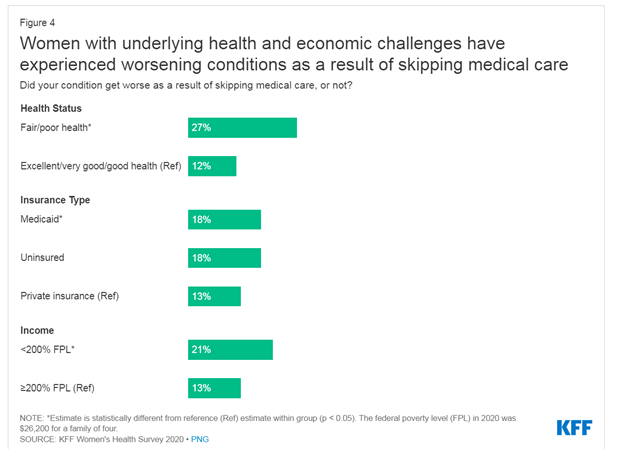 The Kaiser Family Foundation (KFF) recently asked and answered this question, learning that:
The Kaiser Family Foundation (KFF) recently asked and answered this question, learning that:
- A larger share of women went without health care services during the COVID-19 pandemic — particularly women in fair or poor health
- More than half of women said that worry or stress related to the coronavirus affected their mental health, and,
- Women who are already in fair or poor health are more likely than women in better health to say that the pandemic has had a major impact on their mental health.
Still, KFF found that only 15% of women sought mental health care services during the pandemic in 2020.
And finally, uninsured women were less likely to seek mental health care versus women covered by Medicaid or private insurance. It’s important to note that 20% of women on Medicaid sought mental health care compared with 15% of women on commercial private insurance, calling out the safety net goodness that Medicaid provides lower-income women for health care access.


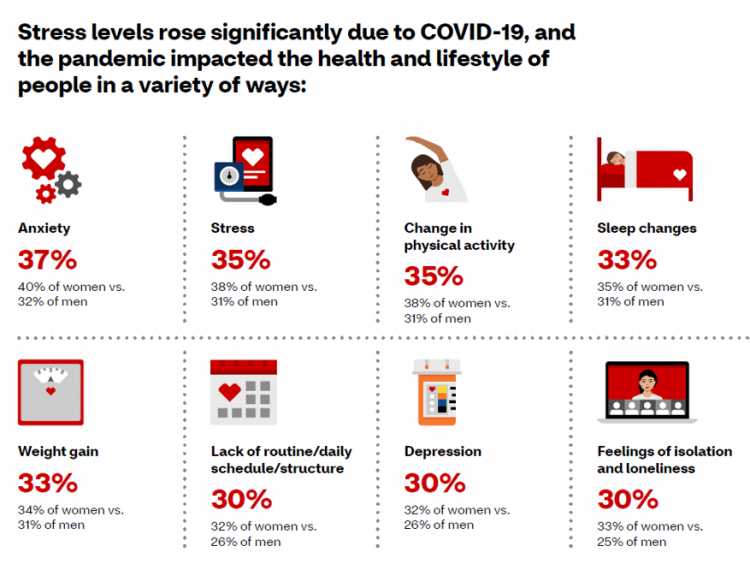


 I was invited to be a Judge for the upcoming
I was invited to be a Judge for the upcoming 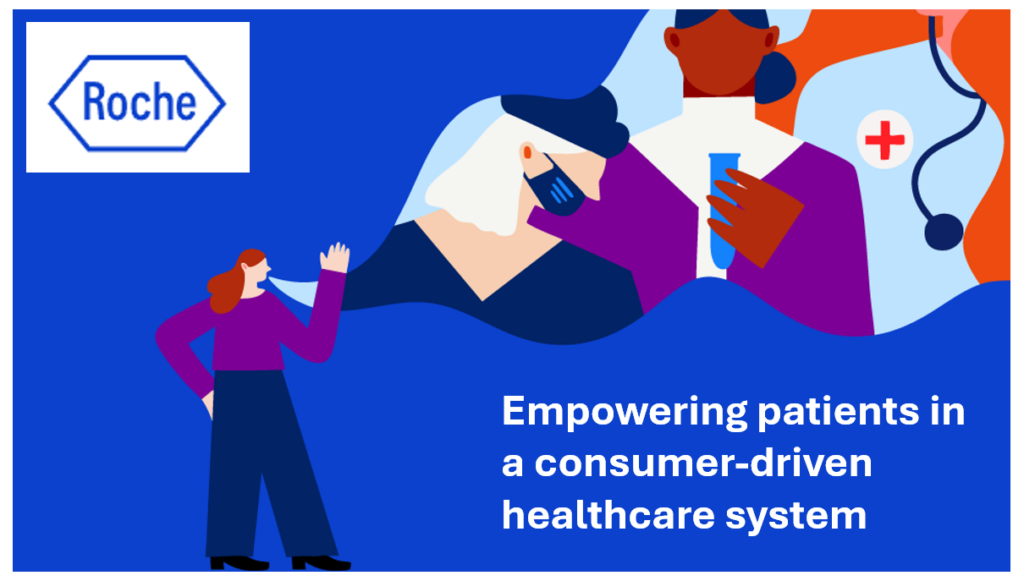 Thank you Team Roche for inviting me to brainstorm patients as health citizens, consumers, payers, and voters
Thank you Team Roche for inviting me to brainstorm patients as health citizens, consumers, payers, and voters  For the past 15 years,
For the past 15 years,